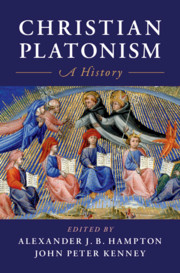Book contents
- Christian Platonism
- Christian Platonism
- Copyright page
- Dedication
- Contents
- Figures
- Contributors
- Acknowledgements
- I Concepts
- II History
- III Engagements
- 3.1 Christian Platonism and Natural Science
- 3.2 Christian Platonism, Nature and Environmental Crisis
- 3.3 Art and Meaning
- 3.4 Value, Dualism, and Materialism
- 3.5 Christian Love and Platonic Friendship
- 3.6 Multiplicity in Earth and Heaven
- Index
- References
3.2 - Christian Platonism, Nature and Environmental Crisis
from III - Engagements
Published online by Cambridge University Press: 20 January 2021
- Christian Platonism
- Christian Platonism
- Copyright page
- Dedication
- Contents
- Figures
- Contributors
- Acknowledgements
- I Concepts
- II History
- III Engagements
- 3.1 Christian Platonism and Natural Science
- 3.2 Christian Platonism, Nature and Environmental Crisis
- 3.3 Art and Meaning
- 3.4 Value, Dualism, and Materialism
- 3.5 Christian Love and Platonic Friendship
- 3.6 Multiplicity in Earth and Heaven
- Index
- References
Summary
Christian Platonism has the capacity to serve as a resource for addressing the present-day environmental crisis. Drawing upon a diverse range of thinkers, including Augustine, Aquinas, Hildegard, Traherne, Coleridge, and Novalis, the chapter illustrates how the tradition envisions a non-anthropocentric conceptualisation of nature.
- Type
- Chapter
- Information
- Christian PlatonismA History, pp. 381 - 407Publisher: Cambridge University PressPrint publication year: 2020
References
- 1
- Cited by

